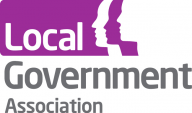
You have been successful in being shortlisted for an interview. In order to maximise your chances at being successful in the interview, there are things you can do to set yourself ahead of other candidates.
Ask questions prior to an interview
When you are sent your interview date, it is almost always through human resources (HR). As soon as you know your interview date, you should email HR and ask who will be on the interview panel, and what format the interview will take place, if this is not already stated in the letter. Make sure you are clear with who is on the panel and their role.
Do not be afraid to seek clarification, or to do some research of your own. Knowing these details will give you an understanding of who will be interviewing you and you can tailor your interview prep to ensure you are covering information that will be relevant to all panel members.
Some organisations use children and youth panels. You will want to be able to prepare for this and ensure you have answers and examples that children and young people can relate to. It will also give you the opportunity to show your ability to engage a range of service users, which is a skill needed within social work.
The interview format is also important to know. Most interviews these days consist of a face-to-face panel interview (conducted virtually, if necessary), and then some form of activity, such as a written exercise, or a presentation. Again, if you are not clear, seek clarification from HR on what format the interview will take. It shows employers that you are serious about the interview, keeps the organisation accountable to the interviewees and ensures that the process is fair.
Researching the interview panel
In the days of LinkedIn and social media, most managers or organisations have a social media presence. There is no harm in reviewing anyone on the interview panel and their employment history.
If you cannot find any of the interview panel on the internet, you can look at the employer’s website to give you a better understanding of the day-to-day functioning of the organisation and exactly what role you are applying for.
During the interview, it is always acceptable to ask questions at the end and seek clarification, perhaps on the roles of the interviewers and how you might be interacting with them if you were successful in your role.
Researching the organisation
It is imperative to come to an interview knowing about the organisation you applied for. Again, almost all organisations these days have a social media presence. Knowing about an organisation, and being able to relay facts and information about it during an interview, will not only impress employers, but keep you on a level with internal applicants, who generally have an advantage for having inside knowledge of an organisation.
Most organisations will publish their improvement plans or good news stories. Incorporate these details into responses to show prospective employers that you have a commitment to shared goals and values of their organisation.
Overall, you want to come across as interested, and confident when asking questions of your prospective employer. You do not want to come across as being too difficult or ask too much of an organisation before an interview. First impressions count immensely in social work, as it gives an indication of what service users and colleagues will experience if you are successful.
 This article is part of Community Care’s Careers Zone, a part of the site giving social workers and social care professionals advice and guidance about the next steps in their social work career. Like many other Careers Zone articles, this one was produced in collaboration with practising social workers and managers, and in association with the Local Government Association’s workforce and policy team. See all of our tips on the dedicated careers page. Download our social work CV template and advice page here.
This article is part of Community Care’s Careers Zone, a part of the site giving social workers and social care professionals advice and guidance about the next steps in their social work career. Like many other Careers Zone articles, this one was produced in collaboration with practising social workers and managers, and in association with the Local Government Association’s workforce and policy team. See all of our tips on the dedicated careers page. Download our social work CV template and advice page here.


 Facebook
Facebook X
X LinkedIn
LinkedIn Instagram
Instagram
Comments are closed.